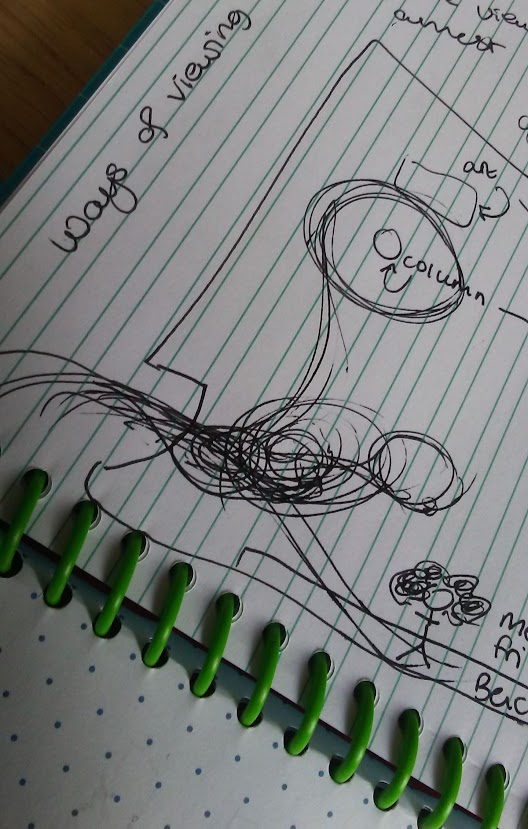I am very fond of Julia Cameron’s idea of the Artist’s Date. The premise is simple: once a week you are to do something that interest you. It can be as simple as walking a different way home; what matters is that they’re something different – something playful and unusual – that gets your brain starting to think and work in a creative manner. I think sometimes we can get hung up on the idea of the ‘big’ creative act – that to write, we must experience immensely dramatic and outlandish things – and I find the Artist’s Date an immensely useful exercise to counter that narrative.
It’s particularly relevant when we think about life post-Covid restrictions. It’s difficult to argue for post- anything when it comes to COVID, so forgive me first for that awkward prefix . Having said that, it is still useful to recognise that the life we (and only some of we) live now is bounded now by different rules – and that when it was ruled by things such as lockdown, it was a much tighter and narrower thing. I was conscious of a mild culture shock when I left my quiet and still street to discover that the city still existed about us. The city centre on a Saturday afternoon, busy and full of race-goers, was an almost palpable shock. Learning to reacclimatise, learning to live again in that space with all of the collective trauma we have experienced over the past year or so, is difficult.
I am increasingly coming to realise that it is a process though, this reacclimatisation. It feels tentative, soft, as though I am rediscovering the city and the world through each step that I take. I have found new paths to the park; a snicket behind houses I could never afford; paths that cut past allotments and so many trampolines in gardens, lined up like a thousand tiny Stonehenges, behind such tall and tightly packed houses.
I chip away at the world, knowing that what I had is still there and that what is yet to come will soon be. I took a bus, proudly, blindly, forgetting much of what taking a bus actually means until I had to do it. Where to sit. How to scan my ticket. That you can even scan a ticket. The language of this space, forgotten, but the memory of it is still there. Like words you rubbed out but the indentation of them lasts on your notebook. The space remembers even if you do not.
I used my bus ride today as my artists date, finding interest not only in being there and on it, but in being on the top deck and at the back. There are so many layers here. And so I pick up my pen and I write, I play.
1. Bilborough Top Macdonalds to the A1 Junction
(I’ve talked before about the importance of “taking a line for a walk” and so I won’t rehash this here. What I will talk about, instead, is the notion of liberation when it comes to putting ink on paper. There are conventions that we are trained into; we write in a certain manner, we treat a page in a certain manner, we even orientate our work in a certain manner. We write to be understood in the way that we have been trained to accept as understanding. Every now and then there is interest to be found in doing things differently. Connecting the dots. Creating something new that makes you look twice at the page. Letting the pen go. Letting yourself follow).
2. Poems
(I do not easily consider myself a poet, nor do I have the training for it, but rather I like to think of what language can do and what it can be made into; the malleability, perhaps of it, the textures, and now that I have written that, I wonder if that is what poetry has been all along).
The Supreme Knowledge of the Top Deck of the Bus
There was a bench behind the hedge with people sat on it the bench I mean not the hedge and there were smoking shelters too four square and grey even though I was not sure that such things even existed anymore and the people were having a meeting in the way I used to have meetings which is to say: not at all.
3. Ways of Viewing
(I’ve been returning to John Berger a lot recently and in particular Ways Of Seeing. Art galleries are a perfect place to think about this sort of thing for they allow an opportunity to see. Not just the art, not just the exhibits, but the people too. No two people experience an art gallery in the same way. There’s something fascinating in that. The way that people see things. And sometimes there’s something really interesting in how people move through a space and mapping that. I sat in one gallery for quite some time, and I mapped how other people experienced it, finding myself as fascinated with their stories of interaction as I was with the piece itself. Art isn’t ever just about the ‘thing’ – it’s about the moment about the thing, I think. The movement about it. The stories it begins).


Er, yes – I went to Haworth on Sunday, turned off the M62 at Halifax, and suddenly realised that I had no idea whether or not I had enough change for the car park (I correctly surmised that Haworth wouldn’t have managed to adapt its machines to take cards!). Always used to check that before I went anywhere, but I’ve just got used to paying for absolutely everything by contactless. Thankfully, I had!
The skills we forget! Isn’t it weird? I was like “I have to get money out of the cashpoint for the first time in months how on earth did I do this all the time”